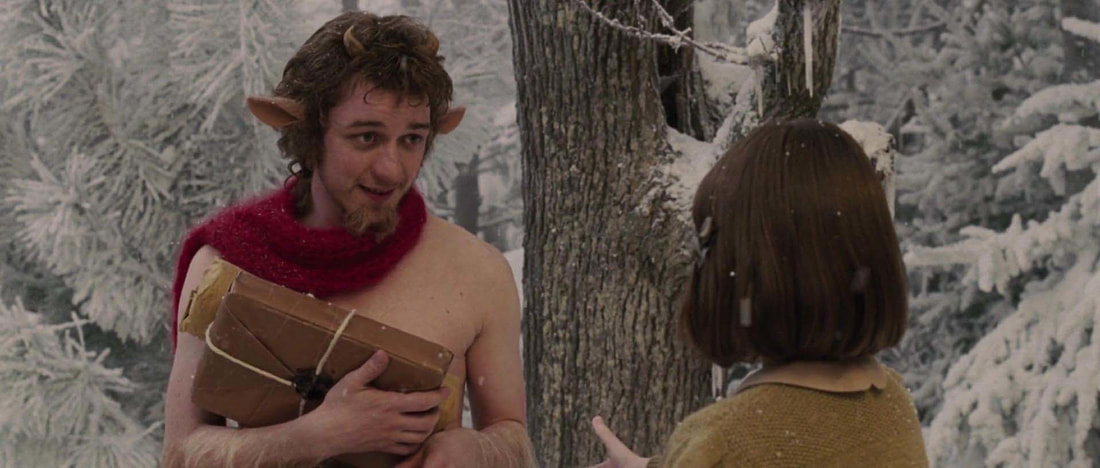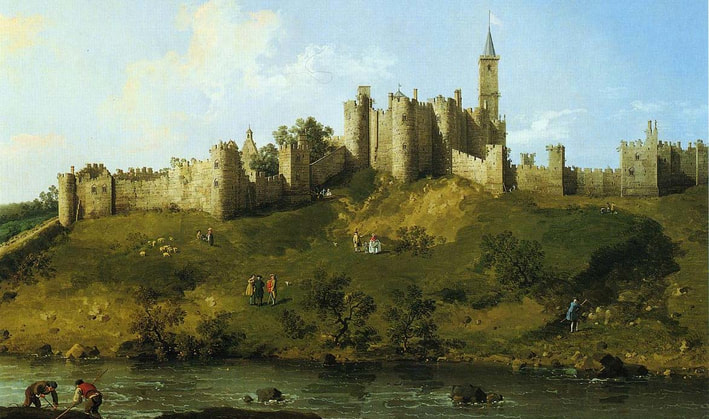|
Christmas is fast approaching and the mad rush to purchase last-minute gifts is in full swing. The season brings with it plenty of sweets, colourful lights, and crowded department stores. For those of you in more northern climes, chances are you’ve been trekking through the snow and ice to do your holiday errands. And finally, the big moment will arrive. You give the gifts, Santa Claus gets the credit, and everybody sits down to eat too much Christmas ham, or your poultry of choice. But believe it or not, that isn’t the only way to celebrate Christmas. They do it a little differently, for example, in Narnia. When we first encounter Narnia in The Lion, the Witch and the Wardrobe it looks like a snow-laden wonderland of sorts. It’s kind of magical, really. But as Mr. Tumnus the faun soon reveals, there is apparently something sinister behind the beautiful quiet of the falling snowflakes. He tells Lucy that the White Witch "has got all Narnia under her thumb. It’s she that makes it always winter. Always winter and never Christmas; think of that!" Sounds horrible. But think of all the time you’d save not having to scour the aisles for stocking stuffers. 
If you remember the story, the Narnians do get to have Christmas eventually. As Peter, Susan, and Lucy Pevensie follow Mr. and Mrs. Beaver through the snow, hoping to escape from the White Witch, they hear the sound of an approaching sledge and its jingling bells. Who else could it be but the witch herself, hoping to catch them before they reach Aslan’s army? But it isn’t. As C.S. Lewis describes the scene, "on the sledge sat a person everyone knew the moment they set eyes on him. He was a huge man in a bright red robe (bright as hollyberries) with a hood that had fur inside it and a great white beard that fell like a foamy waterfall over his chest." Father Christmas himself.
Comments
Have you noticed something? Fantasy has gone mainstream. What was once a genre only acceptable for a select group of people on the fringes—the eccentrics, the nerds, the gamers, the binge-readers, etc.—is now all of a sudden widely popular. People are glued to their screens watching Game of Thrones, Supernatural, and Once Upon a Time. Amazon is developing a new Lord of the Rings series and Netflix has taken the reins of The Chronicles of Narnia. Meanwhile, this year the Harry Potter books passed the 500 million mark in copies sold.

Fantasy is no longer one of literature’s best kept secrets. Maybe we’ve come to realize that these kinds of stories aren’t just for children. Adults can enjoy them too. I grew up reading fantasy books. Like you, perhaps, I was guided by the wisdom of Gandalf and heeded the warnings of Galadriel. I followed along with Lucy as she stepped through the wardrobe into Narnia and with Wendy as she sailed into Neverland. These stories have stayed with me. And I’ve only gone looking for more such adventures since then.
Why do we love fantasy? What drives us to come back to it again and again? It might help to think about what we mean by the word fantasy. In everyday conversation the word can have an unhealthy connotation. It denotes something we think about continually but which is very unlikely to happen. Fantasizing denies what’s real. And it can cause real-world problems. For example, you might fantasize about gambling your way into financial success, and then lose everything. Or your co-worker might be convinced that, despite all evidence to the contrary, you're looking to take over their job. Fantasizing can lead us astray when we refuse to believe our eyes and ears. |
David Raphael HilderJoin the conversation as we explore the best there is in fantasy, sci-fi, adventure, and of course, the classics Archives
December 2020
Categories
All
|


